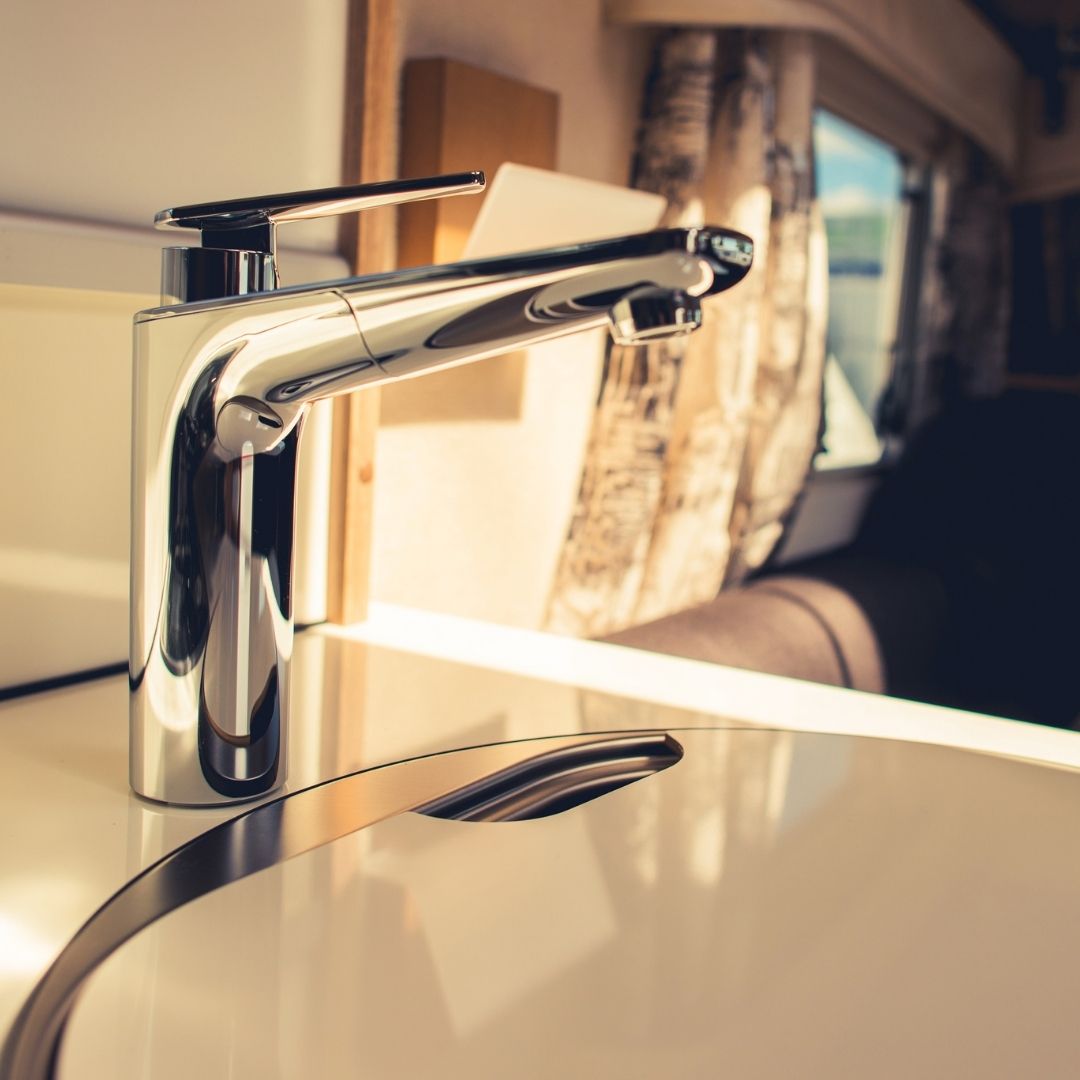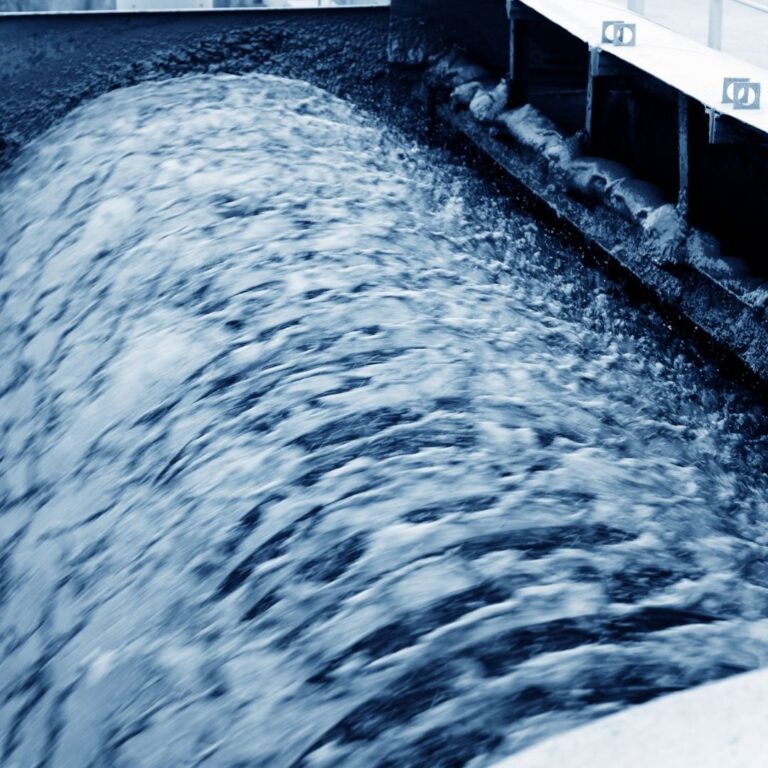How to Treat Stinky RV Water: A Step-by-Step Guide

Camping and living in an RV means having clean and fresh water is absolutely vital. Be it for drinking, cooking, showering, or brushing your teeth, you want it to be safe and pleasant. However, it’s common for the water in RVs to develop some rather unpleasant odors from time to time. Among the most undesirable odors that may fill your camper and completely ruin all experiences, is the smell of rotten eggs. This could be due to the buildup of sulfur in your water system, typically caused by bacteria, minerals, or the breakdown of certain components within your water heater.
Today, I will share with you a step-by-step guide on how to treat stinky RV water. I will also walk you through eliminating odors in your water supply and show you exactly how to keep those odors from coming back. By the end of this guide, you will have all the knowledge you need to keep your RV water fresh and clean for a much more enjoyable and comfortable travel experience.
What Causes Stinky RV Water?
First, it is necessary to understand the cause of stinky water in your RV before going into how it’s treated. Hydrogen sulfide gas (the usual cause of this problem) emits a smell similar to rotten eggs. This can be formed when anaerobic bacteria feed off the sulfates in your water supply, particularly in your water heater. Over time, minerals and bacteria may build up in the system, and eventually, that sulfur-like smell is perceived.
Here are the common causes of smelly RV water:
- Growth of Bacteria in the Water Heater: If your water heater is not regularly cleaned and maintained, then there is the possibility that bacteria can grow in this warm, stagnant water. These bacteria, mixing with the sulfur in the water, produce hydrogen sulfide gas. This hydrogen sulfide gas gives off the rotten egg smell.
- Corroded Anode Rods: Most RV water heaters have a sacrificial anode rod to prevent the tank from rusting by attracting corrosive elements. Of course, this rod can eventually become corroded and cause foul odors.
- Stagnant Water: If water has sat in your RV’s plumbing too long, it can become stagnant and foster bacterial growth with foul odors.
- Contaminated Water Source: Sometimes, the water you’re filling your RV with is already contaminated with high levels of sulfur or other minerals that can cause nasty smells.

How To Treat Stinky RV Water
Step 1: Drain and flush the water heater.
Smelly water calls for draining and flushing your water heater as a first step. This will rid it of any growth of bacteria that might have built up inside it, and sediment accumulation that could contribute to the smell in the water.
- Turn off the water heater and let it cool down for a few hours before draining.
- Locate your water heater’s drain valve and attach a hose to it, directing it toward where the water can be safely discharged.
- Turn the pressure relief valve to a position that permits air into the tank, and open
sup the drain valve for the water to be released. - Run the cold water supply for several minutes to flush the tank with clean water after it has drained.
- Check if your water heater has an anode rod. If it’s badly corroded, replace it with a new one. Anode rods prevent corrosion, but can also contribute to odors if they break down.
Future odor problems can be avoided by flushing your water heater regularly every six months.
Step 2: Clean and disinfect the fresh water tank.
If step one does not clear the smell, it may be time to clean and disinfect your RV’s fresh water tank. This process will eliminate bacteria or mold breeding in the tank.
- Completely drain the fresh water tank.
- Make a sanitizing solution of ¼ cup of household bleach per 15 gallons of water.
- Add this solution inside the tank.
- Fill the tank with fresh water and allow the bleach solution to sit for at least 12 hours.
- After 12 hours, drain the tank once more, and then rinse the tank several times with fresh water to clear the remaining bleach.
To keep your fresh water tank clean and free of bacteria, it’s a good idea to sanitize it at least twice a year.
Step 3: Replace or clean the water filter.
Other possible causes for foul odor could be a dirty or clogged water filter. If your RV uses any filters, you should also be regularly cleaning this component. Filters catch contaminants, and over time they may turn into a breeding ground for bacteria.
- Turn the water supply to your RV off.
- Remove the water filter from its housing and check for any traces of dirt, debris, or damage.
- Clean it with clean water if the filter is reusable. You may also soak it in a vinegar solution to remove mineral buildup.
- If this is not a re-cleanable filter, take out a new one and replace it.
For further details, refer to my guide about how to clean RV water filter.

Step 4: Hydrogen peroxide shock your water system.
If it still smells like rotten eggs after flushing and cleaning, you may want to shock your water system entirely with hydrogen peroxide. Hydrogen peroxide is non-toxic and does a great job killing bacteria, without that highly unwanted chemical smell.
- Completely drain the water system of its contents.
- Mix hydrogen peroxide with water in a ratio of 1 cup of hydrogen peroxide per 40 gallons of water.
- Fill the water tank with this solution, then activate the water pump to pump the mixture into the entire water system.
- Let the solution sit in the system for several hours.
- Drain the system anew and rinse it off with fresh water.
Hydrogen peroxide is unaggressive but still a great way to eliminate the bacteria and odors in your RV water system.
Step 5: Replace the anode rod in your water heater.
If your RV’s water heater features an anode rod, you’ll want to check the component periodically. In the case of corrosive agents in the water, the anode rods serve as magnets to prevent them from reaching and damaging the water heater. On the other hand, if the anode rod becomes too corroded, it can begin to break apart and contribute to the rotten egg smell.
- Turn off the water heater and allow it to cool completely.
- Remove the old anode rod using a socket wrench.
- Check the rod for heavy corrosion or worn-down appearance and replace it with a new one if needed.
- Install the new rod by screwing it into the water heater, then tightening it with the wrench.
Replacing the anode rod every 1-2 years can help prevent sulfur smells from developing and prolong the life of your water heater.
Step 6: Use a water softener.
If you constantly have to put up with reeking water, your water source may be highly concentrated with minerals, such as sulfur or magnesium. These can be reduced by installing a water softener in your RV to prevent such odors from building up in the first place.
- Choose a portable water softener designed for an RV.
- Install the water softener inline with your RV water supply, following the manufacturer’s instructions, which usually recommend replacement or maintenance every few weeks.
A water softener will go a long way in improving how your water tastes and smells, not to mention preventing mineral deposits in your water heater and plumbing.

How To Avoid Stinky Water In An RV
Now that we have learned how to treat stinky RV water, let us discuss how to avoid this menace in the first placfe. A few simple preventive tips can ensure your RV water remains fresh and odor-free for as long as possible.
Regularly sanitize your water system.
One of the best methods to keep foul odor away from your RV’s water is periodically sanitizing the whole water system. This includes the fresh water tank, plumbing lines, and water heater. A good rule of thumb is to sanitize your system every 6 months or after long storage periods.
- Drain the entire water system.
- Sanitize the system using either a bleach solution or hydrogen peroxide solution following the above directions.
- Flush the system copiously with fresh water.
Regular sanitizing will kill bacteria and prevent mold and algae from forming in your water system.
Drain and flush the water heater.
Odors are most frequently encountered in your water heater and originate from bacteria and a buildup of minerals. Drain and flush the water heater periodically to remove sediment, bacteria, and other contaminants. This will maintain your water heater in good condition and prevent odors and should be done every 6 months, ideally.
- Turn the water heater off and let it cool.
- Hook up the hose to the drain valve and flush the tank out with clean water.
- If the anode rod has a lot of corrosion, now is a good time to replace it.
Install a high-quality water filter.
Installing a high-quality water filter on your RV is the most effective way to ensure your water system does not get contaminants. This will help bar many contaminants from accessing your water in the first place. A typical water filter used in RVs works by filtering out bacteria, chemicals, and sediment in your water supply to ensure you are getting clean, fresh water.
- Select a filter that would work for your RV water system, whether a sediment filter or an activated carbon filter.
- Replace the filter periodically with the frequency recommended by the manufacturer.
Utilizing a water filter may enhance the quality of your water and help to prevent odors from specific contaminants.
Use a portable water softener.
If you go camping regularly in areas with hard water, you can utilize a portable water softener to reduce minerals in the water. High levels of sulfur and magnesium in the hard water can form undesirable odors; adding a water softener into the process can help to prevent odors from forming.
- Add a portable water softener to your RV water line.
- Regenerate the softener as required to maintain effectiveness.
Aside from just making your water smell and taste better, the water softener can also help protect your plumbing from mineral buildup.
Regularly drain and refill your water tank.
Anytime you have stagnation of water, you have a chance for bacteria to breed. For that reason alone, you should periodically drain and refill your fresh water tank, especially if you don’t use the RV for a long time. It helps in keeping the water fresh in your system.
- Drain the fresh water tank after each trip.
- Refill the tank with clean water before your next trip.
By keeping your water tank fresh, you can prevent any buildup of bacteria and algae responsible for odors.
Treating stinky RV water is easy with the right approach.
In closing, by being ahead of the game and adhering to the steps outlined throughout this article, you can ensure that the water remains fresh and free from odors, making your next journey on the road much more enjoyable.
For more information on beneficial water therapies and all things around the benefits of water, stay tuned to my blog. I’m always available to give recommendations, reviews, and health information around water.
If you found this particular post helpful, you might want to check out my posts on How to Choose a Camping Water Filter, How to Filter Water for a Camping Trip, and Best Water Filters for Camping.
Stay hydrated,
Shashank Varma (Mr. Water Geek)


